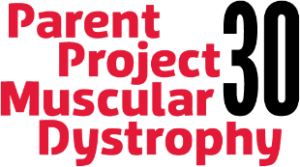SMA is a neuromuscular disease characterized by 2,3:
SMA results from insufficient survival motor neuron (SMN) protein in motor neurons. The SMN1 gene is the primary producer of SMN protein, which is critical for the survival of motor neurons. Patients with SMA lack the SMN1 gene and rely on a closely related gene called SMN2. SMN2 is present in all individuals with SMA and has the ability to produce functional, full-length SMN protein. Although disease severity may not always be predicted by the number of SMN2 copies, there is a strong correlation in many cases.1,3

All individuals with spinal muscular atrophy have mutations in both copies of the survival motor neuron 1 (SMN1) gene. As a result, little or no SMN protein is produced by this gene. SMA Identified tests look at whether any of your SMN1 genes are missing or varied, and the SMA STAT Test and SMA Panel look at your survival motor neuron 2 (SMN2) copy numbers to offer you in-depth information about your SMA genetic status.
SMA is usually inherited as an autosomal recessive trait, which means that an individual must get the altered gene from both parents to be affected.
What is the Program?
The SMA Identified program facilitates access to genetic testing to help in the diagnosis of SMA or carrier status identification of SMA. The SMA Identified program offers three different testing options to address the needs of your patients. Positive results from genetic testing are typically required to initiate treatment.1 Participation in the SMA Identified program does not guarantee access to treatment.
While Biogen provides financial support for this program, at no time does Biogen receive identifiable patient information.
3 testing options are available
Invitae SMA STAT Test: helps confirm the diagnosis of SMA with an expedited turnaround time that determines SMN1 deletion and SMN2 copy numbers. *Results provided within 4 days from when sample is received and ready for processing†
Invitae SMA Panel: helps confirm the diagnosis of SMA with comprehensive genetic analysis. The panel provides both SMN1 and SMN2 copy numbers in 10 to 21 days
Invitae SMA Carrier Screen (SMN1 gene only): For individuals who may have a family history of SMA, carrier screening may help provide information about the likelihood of passing on an SMN1 gene mutation to children
Your doctor will determine which test is appropriate for you. While a confirmed diagnosis and/or SMN2 copy numbers are both typically required to initiate SMA treatment, testing with SMA Identified does not guarantee access to treatment.
Only a healthcare provider can determine whether genetic testing is appropriate for you.
SMA Identified is open to all individuals within the US (inclusive of Puerto Rico) with a suspected diagnosis of, or family history of, SMA*. The genetic test may be helpful if you are:
suspected of having SMA or diagnosed with SMA but do not know your SMN2 copy number
undiagnosed but have a family history of SMA
a first-degree relative of an individual diagnosed via SMA genetic testing
considering getting pregnant, or are already pregnant, and want to determine your SMA carrier status

Collect your patient’s specimen using an Invitae collection kit and return it. Use the label provided to ship most samples at no additional charge from the US and Canada.
Program Information
The SMA Identified program is a sponsored genetic testing initiative designed to diagnose Spinal Muscular Atrophy (SMA), a genetic disorder characterized by loss of motor neurons and progressive muscle wasting. The program offers comprehensive genetic testing to detect the deletion or mutation of the SMN1 gene, which is primarily responsible for SMA.
This program is intended for individuals showing clinical signs of Spinal Muscular Atrophy, such as muscle weakness, decreased muscle tone, and difficulties with movement, as well as for newborns as part of early screening efforts. A referral from a healthcare provider is required to participate in the testing.
The program specifically tests for deletions or mutations in the SMN1 gene, which are the most common cause of SMA. The testing may include quantitative PCR, MLPA, or sequencing technologies to accurately determine the genetic status of the SMN1 gene.
Healthcare providers can enroll patients by submitting an application that includes detailed medical and family history, clinical indications of SMA, and necessary consent forms. This ensures that the genetic testing is appropriate for the patient’s symptoms and risk factors.
The benefits of participating include receiving a definitive genetic diagnosis, which is crucial for confirming SMA and initiating appropriate management and treatment strategies. Early diagnosis, particularly in newborns, can lead to timely interventions that significantly improve outcomes.
Results are generally available within a few weeks after the laboratory receives the sample. This timeframe allows for thorough analysis and ensures accurate genetic diagnosis. The results are communicated directly to the referring healthcare provider, who will discuss them with the patient or the patient’s family.

Founded in 1978, Biogen is a leading biotechnology company that pioneers innovative science to deliver new medicines to transform patients’ lives and to create value for shareholders and our communities. We apply deep understanding of human biology and leverage different modalities to advance first-in-class treatments or therapies that deliver superior outcomes. Our approach is to take bold risks, balanced with return on investment to deliver long-term growth.
The company routinely posts information that may be important to investors on its website at www.biogen.com. Follow Biogen on social media – Facebook, LinkedIn, X, YouTube.

SPINRAZA® (nusinersen) is an antisense oligonucleotide (ASO) developed by Biogen for the treatment of spinal muscular atrophy (SMA), a rare and often fatal genetic disease characterized by the loss of motor neurons, leading to progressive muscle weakness and atrophy. Approved by the FDA in December 2016, SPINRAZA is designed to increase the production of full-length survival motor neuron (SMN) protein, which is deficient in patients with SMA due to mutations in the SMN1 gene. Administered via intrathecal injection, SPINRAZA delivers the therapy directly into the cerebrospinal fluid around the spinal cord. Clinical trials have demonstrated its efficacy in improving motor function in both infantile-onset and later-onset SMA patients, making it a groundbreaking treatment for this debilitating disease.
1. Mercuri E, Finkel RS, Muntoni F, et al. SMA Care Group. Diagnosis and management of spinal muscular atrophy: part 1: recommendations for diagnosis, rehabilitation, orthopedic and nutritional care. Neuromuscul Disord. 2018;28(2):103-115.
2. Darras BT, Royden Jones H Jr, Ryan MM, De Vivo DC, et al. *Neuromuscular Disorders of Infancy, Childhood, and Adolescence: A Clinician’s Approach. 2nd ed. London, UK: Elsevier; 2015.
3. Lunn MR, Wang CH. Spinal muscular atrophy. Lancet. 2008;371(9630):2120-2133. SMA-US-1171 03/24







